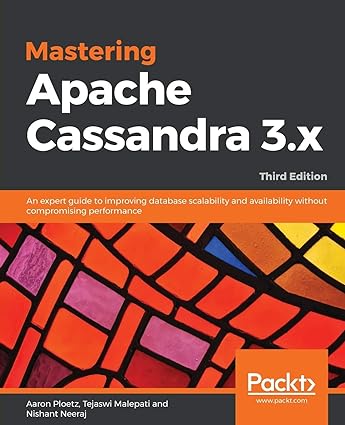Question
In this assignment, you must complete the 5 functons below. Each function's body must consist of just a single C statement. Furthermore, the statement must
In this assignment, you must complete the 5 functons below. Each function's body must consist of just a single C statement. Furthermore, the statement must not be a control statement, such as if, switch, or any kind of loop. For each problem, you are also restricted to the operators and constants as specified. */
/* 1. Write a function which zeros a variable x. A pointer to x is passed as a parameter. YOU MAY USE NO CONSTANTS in this function, and must restrict yourself to using the assignment operator, the dereferencing operator, and one or more of the bitwise operators. */
void zero(int *xptr) {
}
/* 2. Write a function to set x to be the maximum unsigned long integer. The parameter passed to the function is a pointer to x. You may only use the constant 0 in this function, and must restrict yourself to using the assignment operator, the dereferencing operator, and the bitwise operators. */
void maximum(unsigned long *xptr) {
}
/* 3. Write a function to set x to be the minimum long integer. The parameter passed to the function is a pointer to x. You may only use the constants 0-63 in this function, and must restrict yourself to using the assignment operator, the dereferencing operator, the bitwise operators, and the shift operators. */
void minimum(long *xptr) {
}
/* 4. Write a function which sets the integer x to negative x. The parameter passed to the function is a pointer to x. You may only use the constant 1 in this function, and must restrict yourself to the assignment operator, the dereferencing operator, the bitwise operators, and the + operator. */
void negative(int *xptr) {
}
/* 5. Write a function called set_byte. It is passed 3 parameters: a pointer to an unsigned integer x, an index i, and a new value v for the byte. The function should change the ith byte of x to v. Byte 0 is x's least significant byte; byte 1 is the next least significant byte, etc.; byte 3 is x's most significant byte. You may only use the constants 0-4 in this function, and must restrict yourself to the the assignment operator, the dereferencing operator, multiplication, bitwise operators and shift operators. */
void set_byte(unsigned int *xptr, int i, char v) {
}
int main() { int x; int *xptr = &x; long l; long *lptr = &l; unsigned long ul; unsigned long *ulptr = &ul;
zero(xptr); printf("zero %d ", x); maximum(ulptr); printf("max %#lx %lu ", ul, ul); minimum(lptr); printf("min %#lx %ld ", l, l); x = 3; negative(xptr); printf("negative %d ", x); x = 15; set_byte(xptr, 2, 15); printf("%#x ", x); }
Step by Step Solution
There are 3 Steps involved in it
Step: 1

Get Instant Access to Expert-Tailored Solutions
See step-by-step solutions with expert insights and AI powered tools for academic success
Step: 2

Step: 3

Ace Your Homework with AI
Get the answers you need in no time with our AI-driven, step-by-step assistance
Get Started


